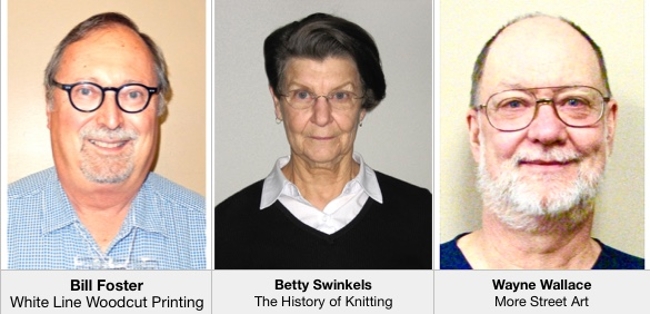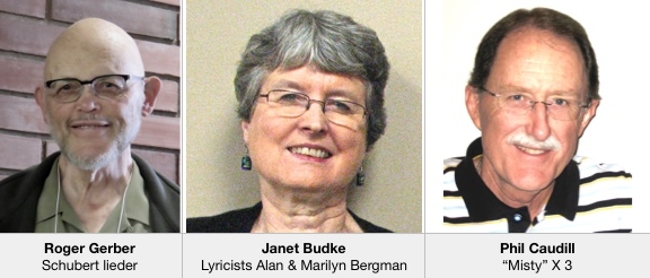Tuesday, April 3
| 10:30 a.m.–12:30 p.m. | "Where Did All the Trees Come from?" Bill Voelker [Sharon Wright], Kaneko Auditorium
|
| 1:30 – 3:30 p.m. | "Critical Issues for Oregon's K-12 Students," Tass Morrison [Jinx Brandt], Kaneko Auditorium
Tass Morrison is President-elect of the Oregon School Boards Association and will serve as President in 2019. Now in her eighth year of local school board service, Tass was re-elected to a third term on the North Santiam School District (Lyons/Mehama, Stayton, Sublimity) Board last May. Tass is a native Oregonian and grew up on a wheat ranch in rural Eastern Oregon. She received a BA from Oregon State University, MS in education from Western Oregon University (aka OCE), and completed the School Administration program at Lewis and Clark College in Portland, Oregon. Tass and her husband, Tom Anderson, are both retired educators and live in Sublimity. Tass recently completed six years serving on the Stayton Sublimity Chamber of Commerce Board of Directors. In February 2018, she will receive the Distinguished Service Award at the annual community awards ceremony. In 2008 she was named Woman of the Year for Stayton and Sublimity. She currently serves on the North Santiam Services Integration Team and the Regional Tourism Marketing Team. |
Thursday, April 5
| 10:30 a.m.–12:30 p.m. | "Herbaria and You: How Citizen Science is Unlocking Biodiversity Data and How You Can Help," Melanie Link-Perez [Denis Williamson], Kaneko Auditorium The World's herbaria comprise a vast collection of the earth's plants, algae, and fungi, yet many people are unaware of these repositories of biological diversity or the critical role they play in supporting research and humanity's understanding of these organisms. This presentation will provide background on herbaria and their many uses in the scientific endeavor. Currently, there is a worldwide effort to mobilize the data contained within herbaria by digitizing collections, and Citizen Scientists are playing a valuable role. Participants will learn how they, too, can get involved as citizen scientists and why their contributions matter. |
| 1:30 – 3:30 p.m. | Tour of the Hallie Ford Museum Basement, Hallie Ford Museum (Cnr. State & Cottage Streets) ICL members will tour the museum in small groups accompanied by staff and docents after meeting in the lobby at 1:30 p.m. |
Tuesday, April 10
| 10:30 –11:30 a.m. | "Beethoven: The Farewell Sonata (1810)," Robert Greenberg [Solveig Holmquist], Kaneko Auditorium
|
| 11:30 a.m. – 12:30 p.m. | "Tchaikovsky's 1812 Overture," Solveig Holmquist, Kaneko Auditorium
In his course guidebook to this 2016 series, Professor Greenberg explains his rationale for excluding one of two famous musical works from the survey: "The single most famous concert work that was explicitly inspired by a historical event is Peter Tchaikovsky's 1812 Overture of 1880. However, Tchaikovsky's 1812 Overture was composed 68 years after the events it describes. It is not an artistic reaction to current events but, rather, an exercise in nostalgia, a "grand comparative festival piece" for use at celebrations." While I understand and applaud Greenberg's reasoning and integrity in sticking to his plan, I don't think we need to adhere to it. The 1812 Overture is very characteristic of the Romantic Era, and as such is highly programmatic: we are musically introduced to all the protagonists as well as the course of events that led to Napoleon's defeat in Moscow. What better way to finish an understanding of the effect the Napoleonic campaigns on such a vast political and geographic landscape? |
| 1:30–3:30 p.m. | "Doing Disability Studies: Equity and Justice Through the Arts and Humanities," Allison Hobgood [Anne Bowden], Kaneko Auditorium This talk offers discussion of the role of Disability Studies in the Humanities. We will engage the following questions, and then some: What is disability? How does it get socially constructed? What is Disability Studies as an academic and critical methodology? What are its fundamental premises and goals? Ultimately, this lecture and discussion will invite learners to consider the power of disability studies as a humanistic endeavor that works toward social justice, and to understand the importance of disability as a key part of our world and lived experiences.
|
Thursday, April 12
| 10:30 a.m.–12:30 p.m. | "Art About Water and Those Who Protect It," April Waters [Jinx Brandt], Kaneko Auditorium
Water, with its qualities of reflection, transparency and movement, has been the focus of April Waters’s paintings for decades. When she is inspired by a place, she goes there often, in different seasons and on different times of the day. In most cases, she sketches or paints on site. Sometimes, she hires a helicopter pilot to fly her over the site to see what it is like from above. [She has also used a drone for aerial views.] Equipped with sketches and her experiences, she then paints in her studio using oil on canvas or oil on panel. As she focused her painting on the rivers, creeks, estuaries and coastlines of the Northwest, she became interested in water in a larger context. She traveled to meet, learn from and photograph contemporary women leaders who were making significant environmental contributions around water. After meeting each one, she painted a large scale portrait to bring attention to their work. Her series of paintings of Dr. Helen Caldicott, Dr. Wangari Maathai, Dr. Vandana Shiva and Maude Barlow represent women who are working, or who have worked, to protect the watersheds of the world and assure that fresh water remains available to all. Waters has a Bachelor of Fine Art from University of Colorado in Boulder and did graduate work at Cal State Fullerton University. She worked for over twenty years as a Registered Nurse. Now her works are in many places of healing including Salem Hospital, the Hope Orthopedic Clinic, the Slocum Orthopedic Clinic in Eugene, the Peace Health Medical Center in Springfield and the Adventist Memorial Hospital of Portland. |
| 1:30 – 2:30 p.m. | Hanni Scholars: " 'The Chinese Must Go': A History of the Disappearance of Oregon's Chinatowns," [Tom Zook], Kaneko Auditorium Ivy Majors McDowall, Major: History and Politics (Class of 2018), Faculty Sponsor: Ellen Eisenberg Using census records, Sanborn Fire Insurance maps, newspapers, and city records, this presentation uncovers the existence of a Chinatown in Astoria, The Dalles, and Salem between 1880 to 1930. As in other Chinese communities along the Pacific Coast, the 1875 Page Act and 1882 Chinese Exclusion had a detrimental effect on Chinese communities in Oregon. However, federal legislation was not the only factor that led to the decline and displacement of these Chinese communities. By comparing these cities, this presentation answers why these communities disappeared by the 1930s, revealing a narrative of Chinese immigration, settlement, and exclusion in Oregon. I argue that these cities’ locations and local economies greatly determined the migration, employment, and treatment of the Chinese, ultimately affecting the outcome of these Chinatowns. Furthermore, I argue that the disappearance of Salem’s Chinatown was different in comparison to Astoria and The Dalles, because the city did not have a major industry that depended on Chinese labor. Thus, this presentation provides a model for looking at the decline of Chinatowns in different types of cities - those where the Chinese labor force was key versus those where it was more incidental.
|
| 2:30–3:30 p.m. | Hanni Scholars: "Condemning Colonizers, Celebrating South African Folks in Mark Dornford-May’s 'Yiimimangaliso: The Mysteries'," Holly Walsh [Tom Zook], Kaneko Auditorium Holly Walsh: Major: English (Class of 2018) Faculty Sponsor: Fran Michel Postcolonial studies often dissent with the validity of the term “post”colonial in that once a country has been colonized, it is next to impossible to completely revert back to pre-colonial norms. Despite these persistent effects of colonialism and apartheid, when “post”colonialist theory is put side by side with Yiimimangaliso: The Mysteries, Mark Dornford-May’s 2001 South African adaptation of the medieval English Chester Mystery Plays, it becomes clear that the adaptation works to turn the tables on racial coding typically thought of as “good” and “bad” in biblical stories, and seeks to recreate a time when colonizers had yet to imprint their racial and language structures on the country. The careful casting and language decisions in the adaptation go further than simply diminishing the power of white people, they go so far as to demonize white people in a commentary on the evils of colonialism and a successful attempt to return to South African pride. Through the reversal of racial coding in casting and the careful assignment of language, Yiimimangaliso: The Mysteries, Mark Dornford-May’s South African adaptation of the medieval English Chester Mystery Plays, notes the evils of colonialist racism and celebrates black, specifically South African folks.
"Luckily for me, my writing has carried over to my current job in a virtual assistant capacity. I work for Alumni Association President and Board of Trustee member Adam DuVander managing and brainstorming ideas for one of his business endeavors, BatchGeo's Blog. This involves gathering data, outlining, writing, and editing the weekly blog posts. This job has piqued my interest to continue doing this type of work with other blogs as well as my desire be a freelance writer in the future. "Being happy with what I’m doing is my life goal, and I know this will involve writing. "In my last year at Willamette, I began to take a new direction in my English studies by taking as many courses as possible in American Ethnic and Post-Colonialist Studies as I could within the English major. These include Literature of Diaspora, Latinx Countercultures, and African American Literature. "I hope to incorporate my newfound interest in these topics into my future freelance writing career by writing about social justice issues related to race for blogs, newspapers, etc. "In addition to my interest in writing, I have also been heavily involved in the Opening Days program at Willamette. I most recently was the 2017 Opening Days Coordinator and for two consecutive years prior I was an Opening Days Leader as well as serving on the hiring committee for the program. "I am also an avid reader and enjoy a variety of genres from the latest contemporary novel to an article explaining the different personality types (I’m an INTJ!) I hope to have more time to read once I graduate!" |
Tuesday, April 17
| 10:30 –11:30 a.m. | "The Art of Science/The Science of Art–Exploring the Interface of Art and Science," Professor Jason Duncan and Students [Don Gallagher], Kaneko Auditorium
Images of biological organisms, tissues, and cells are extremely powerful representations of scientific data and phenomena. Great images, however, do even more – they artistically convey the complexity and astounding beauty of biology in a way that transcends language, culture, and knowledge. Students in Jason Duncan’s Bio l350 Molecular Genetics class were tasked with producing compelling scientific/artistic images, using cytological techniques and instrumentation available to them in the Department of Biology at Willamette University, to be displayed in a public art exhibition entitled The Art of Science/The Science of Art. The students who created them will present samples of the images produced for this exhibition, in addition to details regarding the methodology that was employed to acquire each image. |
| 11:30 a.m. – 12:30 p.m. | "Hip Surgery: What You Need to Know," Dan Sewell {Sally Schriver], Kaneko Auditorium
Dr. Dan Sewell graduated from South Salem High School and received his undergraduate degree from Whitman College. His medical degree is from Washington University in St. Louis. He served his internship at the Portsmouth Naval Hospital, and residency at the National Naval Medical Center. He is a member of the American Association of Hip and Knee Surgeons and performs more than 200 joint replacement surgeries per year. He has a strong interest in joint arthroplasty and has been a pioneer within Oregon creating an outpatient total joint arthroplasty program at the Willamette Surgery Center. Over 100 outpatient total hip and knee replacements have been performed by Dr. Sewell and other members of the total joint team from Hope Orthopedics over the past year. |
| 1:30–2:30 p.m. | Hanni Scholars: "Cross-cultural Aging and Elderly Care," Therese Nguyen [Tom Zook], Kaneko Auditorium Therese Nguyen: Major: Anthropology (Class of 2019) Faculty Sponsor: Joyce Millen To what extent are our expectations, perceptions, and subjective experiences of "vulnerability" and "loss" in later life influenced by our social contexts? How can exploring the lives of the elderly in non-Western societies deepen and expand our understanding of this exceptionally human experience and perhaps reveal the ways in which our individualist and capitalist society constrain or support how we age? Consider, for example, how solidarity provided by religious membership can insulate the physical health of the individual, or how collectivist culture’s value placement on wisdom, engages older individuals in the kinds of intergenerational exchanges that keep them mentally active? Our social conditions, therefore, play a key role in influencing psychological, physical, and emotional experience of aging, a notion that this research builds around and upon. This project explores "old age" cross-culturally, specifically looking at how elderly Vietnamese women’s experiences of community and care inform their later life experience, to better understand how culture shapes one's perception and experience of aging.
|
| 2:30–3:30 p.m. | Hanni Scholars: "The Synthesis and Testing of Novel Tetracaine Derivatives as Potential Local Anesthetics," Claire DeAngeli [Tom Zook], Kaneko Auditorium Claire DeAngeli: Major: Biochemistry, (Class of 2018), Faculty Sponsor: Sarah Kirk Local anesthetics (LAs) provide patients with higher levels of post-operative comfort by combating pain and decreasing the use of narcotic pain medications. LAs act as voltage-gated sodium ion channel blockers in the neuronal tissues in which they are injected. When the transportation of Na+ ions across a neuron membrane is inhibited, the electrical potential traveling through the nerve carrying a pain signal to the brain is prevented (1). The focus of this project is to synthesize a LA that will have prolonged duration, and minimal cytotoxicity. We modified tetracaine, an FDA approved LA, to contain an amide linkage in place of the ester linkage via a two-step synthesis (86% yield)(2). Previous studies confirm the amide linkage is hydrolyzed at a slower rate than the ester linkage, and is suspected to have prolonged anesthetic effects (2). The amide tetracaine is tested in rats via a single, percutaneous injection into the sciatic nerve, and compared to a known LA. The rats undergo withdrawal testing using von Frey filaments, and the sciatic nerve is extracted post-mortem for histology analysis to assess cytotoxicity. Preliminary testing indicates the amide tetracaine is effective as a LA nerve block.
|
Thursday, April 19
| 10:30 a.m.–11:30 p.m. | " 'Born a Crime: Stories from a South African Childhood' by Trevor Noah," Jan Svingen, Kaneko Auditorium
The eighteen personal essays collected are by turns hilarious, dramatic, and deeply affecting. His stories weave together to form a moving and sneeringly funny portrait of a boy making his way through a damaged world in a dangerous time, armed only with a keen sense of humor and a mother's unconventional, unconditional love. |
| 11:30 a.m.–12:30 p.m. | "Small Groups and Their History," Various Small Group Representatives [Deborah Ehlers], Kaneko Auditorium Representatives from various small groups operating within the framework of ICL will tell us about their areas of interest. Interest in starting new small groups will be solicited. Presenters:
Gretchen Jensen and Don Taylor will read a 10-minute play to end the segment. |
| 1:30 p.m.-2:30 p.m. | Hanni Scholars: "A Citizen’s Evaluation of Oregon Corrections Enterprises," Elizabeth Hartman [Tom Zook], Kaneko Auditorium Elizabeth Hartman: Major: Politics, Minor: Economics, (Class of 2018), MBA (class of 2019), Faculty Sponsor: Melissa Michaux This research determines if Oregon Corrections Enterprises (OCE) continues to meet the goals set in its mission statement. OCE provides prison industry work programs to inmates to provide experience that has transferable skills into the market after being released from prison. However, the intent of the goals set by OCE 20 years ago no longer match the impact due to the changing market economy of jobs. By using a qualitative and quantitative outcome evaluation, data and interviews support three subject areas: work experience (percent of prisoners participating, and range of programs offered), skill building for post-prison work, and recidivism rates. By looking at data on a national level, it will measure whether Oregon’s prison industries are accomplishing what they set out to do.
"On campus, I served on student government, president of Alpha Chi Omega sorority, and as a leadership consultant. In my spare time, I work Legislative sessions as a Legislative Aide for Senator Jackie Winters. "Now I am in my senior year – I find myself across the street at the Atkinson Graduate School of Management pursuing my MBA in the 3:2 program. In May of 2018, I will graduate with my bachelor’s degree in politics and a minor in economics. In May of 2019, I will graduate with my MBA, focused in finance and data analytics. "I want to pursue my passion of helping others by spending my life bridging the qualitative and quantitative gap seen in the political sphere by providing well-rounded solutions to any problem with awareness to ethnocentric ideas, understanding of informal and formal institutional rules, and voicing all viewpoints. After I graduate in 2019, I hope to return to Washington DC to work in public sector consulting. I plan to eventually run for office in Oregon to improve Oregon's education and healthcare." |
| 2:30–3:30 p.m. | Hanni Scholars: "Middle Eastern Microfinance: Attempting Gender Equitable Economic Development Without the Features of Success," Nina Dabit [Tom Zook], Kaneko Auditorium Nina Dabit: Major: Economics, (Class of 2018), Faculty Sponsor: Don Negri Microfinance Institutions have been lauded as a useful tool for achieving more gender equitable economic development, specifically coming from the supposed success of their start in Bangladesh. In the Middle East, the current lack of financial institutions, ingrained gender norms, and few legal financial rights have caused issues for the implementation and success of microcredit. Often, they have been shown to lead to unintended consequences such as additional child labor, a husband’s default, profits used to pay debts, and domestic violence. While MENA has a high development level, though stagnant recently, and high rates of female education without appropriate job placement or compensation, the MENA region is ripe for this type of development but must see reforms to succeed in microcredit.
|
Tuesday, April 24
| 10:30 a.m.–12:30 p.m. | "Robotics," Chuck Sekafetz [Kasia Quillinan], Kaneko Auditorium Description TBA
|
| 1:30 – 2:30 p.m. | Art Potpourri [Sharon Wright], Kaneko Auditorium ICL members will share their art and/or favorite art or art history topic.
|
| 2:30–3:30 p.m. | Music Potpourri [Solveig Holmquist], Kaneko Auditorium ICL members will share with us some of their favorite music selections.
|
Thursday, April 26
| 10:30 a.m.–12:30 p.m. | ICL Members Up Close, Kaneko Auditorium ICL is made up of a very interesting group of folks with fascinating backgrounds. In this session which has become an ICL tradition, we will get to know a few of them a little better, as we ask them to share an interesting story from their family, their work experience, or world experience. Today we will hear 15 minute stories from ICL members, David Craig (2017), Virginia Vanderbilt (2017), Carol Moeller (2015), Ingrid Brandt (2015) and other volunteers yet to be determined. You won't want to miss this session!
|
| 12:30 – 2:30 p.m. | End-of-Semester Luncheon and Annual General Meeting, Montag Den Description TBA |


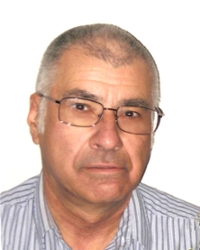 Fourteen thousand years ago there were few, if any, closed forests in what is now western Oregon. Today there are over a billion trees. The trees are the result of seed migration over the past several thousand years and before that several billion years of evolution from initial life. ICL member Bill Voelker, a retired forester, who arrived here somewhat later, will discuss and speculate about how it all happened.
Fourteen thousand years ago there were few, if any, closed forests in what is now western Oregon. Today there are over a billion trees. The trees are the result of seed migration over the past several thousand years and before that several billion years of evolution from initial life. ICL member Bill Voelker, a retired forester, who arrived here somewhat later, will discuss and speculate about how it all happened.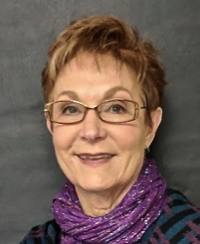
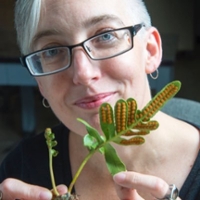 Dr. Melanie Link-Perez is the curator of the OSU Herbarium. She received her Ph.D. in 2010 from Miami University, where she studied the systematics of the neotropical fern genus
Dr. Melanie Link-Perez is the curator of the OSU Herbarium. She received her Ph.D. in 2010 from Miami University, where she studied the systematics of the neotropical fern genus 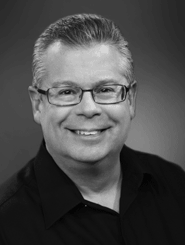 It is difficult today to appreciate the degree to which Napoleon and the revolution he was presumed to embody loomed over Europe during the first half of the 18th century. Napoleon's admirers included such German and Austrian patriots as Immanuel Kant, Georg Wilhelm Friedrich Hegel, Johann Wolfgang von Goethe, and Friedrich Schiller. As for Ludwig von Beethoven, his identification with Napoleon was personal. Napoleon -- a Florentine among Corsicans and a Corsican among the French -- was an outsider who had risen to the heights thanks to his own genius and industry. For Beethoven -- a Rhinelander among the Viennese, hearing impaired among the hearing healthy, a man of genius struggling to achieve the sublime -- Napoleon Bonaparte
It is difficult today to appreciate the degree to which Napoleon and the revolution he was presumed to embody loomed over Europe during the first half of the 18th century. Napoleon's admirers included such German and Austrian patriots as Immanuel Kant, Georg Wilhelm Friedrich Hegel, Johann Wolfgang von Goethe, and Friedrich Schiller. As for Ludwig von Beethoven, his identification with Napoleon was personal. Napoleon -- a Florentine among Corsicans and a Corsican among the French -- was an outsider who had risen to the heights thanks to his own genius and industry. For Beethoven -- a Rhinelander among the Viennese, hearing impaired among the hearing healthy, a man of genius struggling to achieve the sublime -- Napoleon Bonaparte 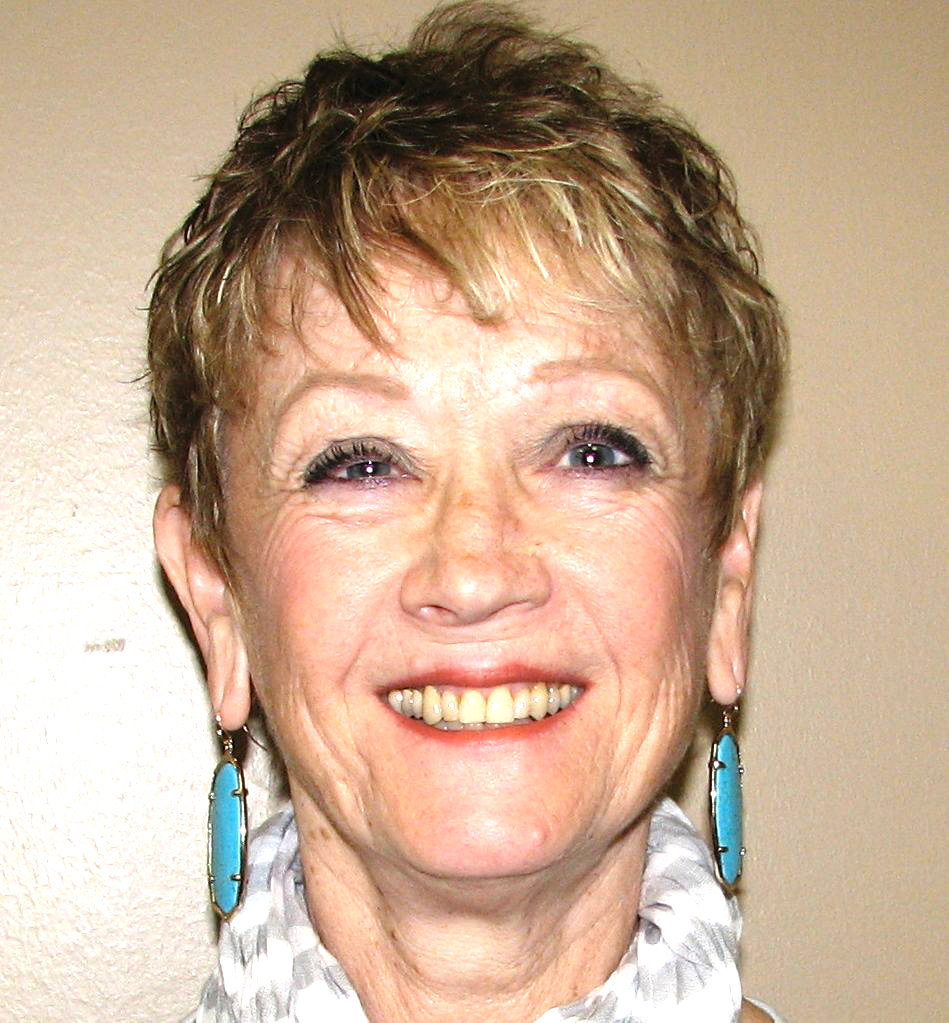 There's been a lot of positive response to our current Great Courses series, "Music As A Mirror of History", led by Professor Robert Greenberg, For many, his knowledge and discussion of the historical contexts for many familiar musical works is bringing new insight to both the history and the music, and has even cleared up a few misconceptions. The past three lectures, involving music of Haydn and Beethoven, have been connected by a thread of historical significance: both of these composers were greatly affected, though in different ways, by the military conquests of Napoleon Bonaparte throughout Europe during their (overlapping) lifetimes.
There's been a lot of positive response to our current Great Courses series, "Music As A Mirror of History", led by Professor Robert Greenberg, For many, his knowledge and discussion of the historical contexts for many familiar musical works is bringing new insight to both the history and the music, and has even cleared up a few misconceptions. The past three lectures, involving music of Haydn and Beethoven, have been connected by a thread of historical significance: both of these composers were greatly affected, though in different ways, by the military conquests of Napoleon Bonaparte throughout Europe during their (overlapping) lifetimes. 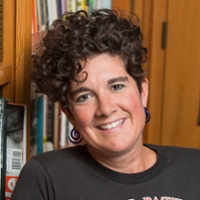 Allison P. Hobgood is Associate Professor of English at Willamette University in Salem, Oregon. She is the author of Passionate Playgoing in Early Modern England, editor with David Houston Wood of two collections: Recovering Disability in Early Modern England and Disabled Shakespeares. She has edited a special issue on disability, care work, and teaching in the journal Pedagogy, and her other work has appeared in venues such as Shakespeare Bulletin, and the collected volumes Shakespearean Sensations: Experiencing Literature in Early Modern England, and Disability, Health, and Happiness in the Shakespearean Body. Most recently, she was awarded a National Endowment for the Humanities Summer Stipend for work on her new book, Beholding Disability in the English Renaissance.
Allison P. Hobgood is Associate Professor of English at Willamette University in Salem, Oregon. She is the author of Passionate Playgoing in Early Modern England, editor with David Houston Wood of two collections: Recovering Disability in Early Modern England and Disabled Shakespeares. She has edited a special issue on disability, care work, and teaching in the journal Pedagogy, and her other work has appeared in venues such as Shakespeare Bulletin, and the collected volumes Shakespearean Sensations: Experiencing Literature in Early Modern England, and Disability, Health, and Happiness in the Shakespearean Body. Most recently, she was awarded a National Endowment for the Humanities Summer Stipend for work on her new book, Beholding Disability in the English Renaissance.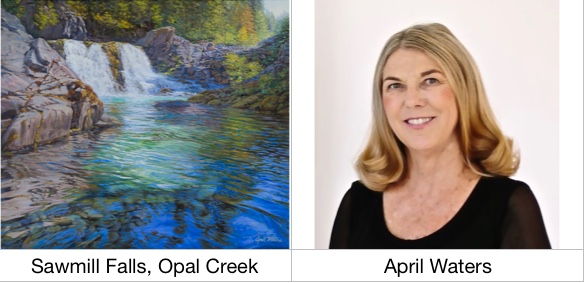
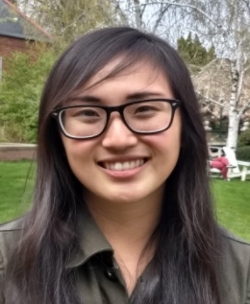 Ivy writes: "I am a senior graduating with a major in History and Politics, and a minor in American Ethnic Studies. I hope to be a policymaker or advocate focused on fighting gender inequality and gender-based violence. I plan to work abroad in Asia in a non-government organization centered around community development or reproductive health and education. Afterwards, I plan to receive a Master’s Degree in public policy. My most valuable skills come from my time interning with the Willamette University Archives, as well as from being a part-time legislative assistant for State Representative Susan McLain. I have also been a member of Sexual Assault Response Allies (SARA) for the last four years, which has taught me how to be a better advocate and stronger ally. All these experiences have come together to help me transform my passion and knowledge into political action. Working in archives, at the State Capitol, and as a SARA have challenged me to critically think, research, and analyze not only the past and legislative policy, but also learn how to be compassionate and understanding of our history and our differences.
Ivy writes: "I am a senior graduating with a major in History and Politics, and a minor in American Ethnic Studies. I hope to be a policymaker or advocate focused on fighting gender inequality and gender-based violence. I plan to work abroad in Asia in a non-government organization centered around community development or reproductive health and education. Afterwards, I plan to receive a Master’s Degree in public policy. My most valuable skills come from my time interning with the Willamette University Archives, as well as from being a part-time legislative assistant for State Representative Susan McLain. I have also been a member of Sexual Assault Response Allies (SARA) for the last four years, which has taught me how to be a better advocate and stronger ally. All these experiences have come together to help me transform my passion and knowledge into political action. Working in archives, at the State Capitol, and as a SARA have challenged me to critically think, research, and analyze not only the past and legislative policy, but also learn how to be compassionate and understanding of our history and our differences.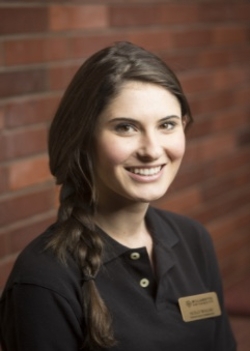 Holly writes: "
Holly writes: "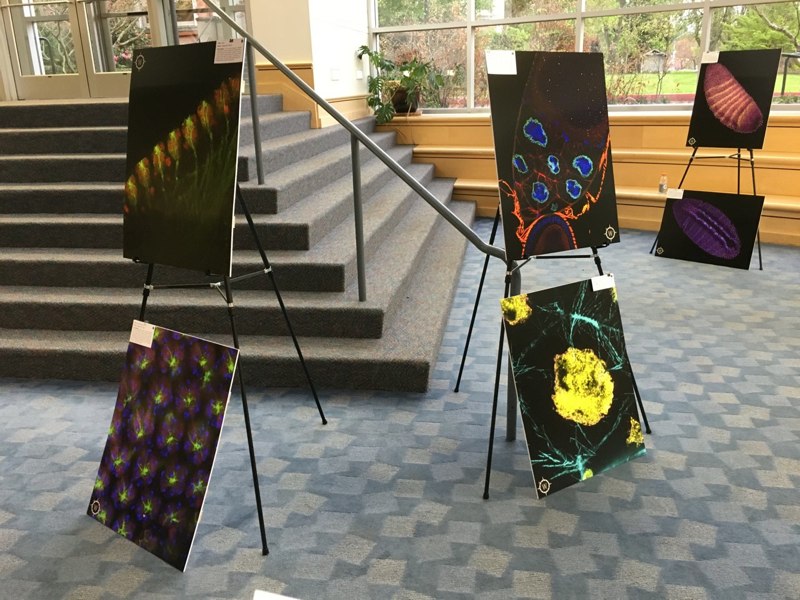
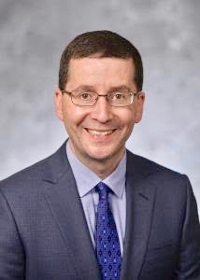 Different types of arthritis. Characteristics and causes of osteoarthritis. The hip joint. Features of hip osteoarthritis. Conservative management of hip osteoarthritis. Operative and postoperative management of hip osteoarthritis.
Different types of arthritis. Characteristics and causes of osteoarthritis. The hip joint. Features of hip osteoarthritis. Conservative management of hip osteoarthritis. Operative and postoperative management of hip osteoarthritis. 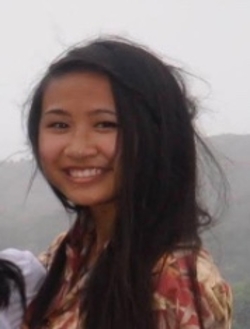 Therese writes: "I have always understood myself to be a deeply curious and compassionate person, with a profound enthusiasm for learning and teaching and concern for humanitarian issues that have driven my main interests and involvements at Willamette, where I’m engaged in and seek opportunities to be a part of activities that expand and deepen my thinking and enable me to apply new understandings in ways that can reach and help others. From an upcoming service-learning project I’m participating in this spring break and the Carson research project that I pursued this past summer, to my involvement at a Native high school’s tutoring program (Chemawa Indian Partnership Program) and in an on-campus organization called All Abilities Alliance (AAA), I feel most purposed when I get to intersect education and learning with service and compassion in creative and fulfilling ways. I plan to continue to grow these passions and apply them more fully in my post-graduate pursuits that will deepen my ability to contribute to society. Specifically, I hope to pursue a Fulbright Scholar research project upon graduating, and then continue onto graduate studies in"
Therese writes: "I have always understood myself to be a deeply curious and compassionate person, with a profound enthusiasm for learning and teaching and concern for humanitarian issues that have driven my main interests and involvements at Willamette, where I’m engaged in and seek opportunities to be a part of activities that expand and deepen my thinking and enable me to apply new understandings in ways that can reach and help others. From an upcoming service-learning project I’m participating in this spring break and the Carson research project that I pursued this past summer, to my involvement at a Native high school’s tutoring program (Chemawa Indian Partnership Program) and in an on-campus organization called All Abilities Alliance (AAA), I feel most purposed when I get to intersect education and learning with service and compassion in creative and fulfilling ways. I plan to continue to grow these passions and apply them more fully in my post-graduate pursuits that will deepen my ability to contribute to society. Specifically, I hope to pursue a Fulbright Scholar research project upon graduating, and then continue onto graduate studies in"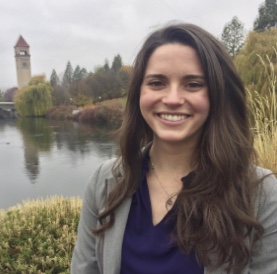 Claire writes: "I am originally from Reno, NV and have always been interested in pursing a career in a health related field. I am currently working on my biochemistry thesis, and loving the research I am doing under Professor Kirk. Although I enjoy working in the lab, I am planning to apply to medical school this summer, and work in a hospital in Reno throughout that process. While I am home, I am looking forward to hiking, running, biking, and enjoying Lake Tahoe activities with my family."
Claire writes: "I am originally from Reno, NV and have always been interested in pursing a career in a health related field. I am currently working on my biochemistry thesis, and loving the research I am doing under Professor Kirk. Although I enjoy working in the lab, I am planning to apply to medical school this summer, and work in a hospital in Reno throughout that process. While I am home, I am looking forward to hiking, running, biking, and enjoying Lake Tahoe activities with my family." Trevor Noah's unlikely path from apartheid South Africa to the desk of The Daily Show began with a criminal act: his birth. Trevor was born to a white Swiss father and a black Xhosa mother at a time when such a union was punishable by five years in prison. Living proof of his parents' indiscretion, Trevor was kept mostly indoors for the earliest years of his life, bound by the extreme and often absurd measures his mother took to hide him from a government that could, at any moment, steal him away. Finally liberated by the end of South Africa's tyrannical white rule, Trevor and his mother set forth on a grand adventure, living openly and freely and embracing the opportunities won by a centuries-long struggle.
Trevor Noah's unlikely path from apartheid South Africa to the desk of The Daily Show began with a criminal act: his birth. Trevor was born to a white Swiss father and a black Xhosa mother at a time when such a union was punishable by five years in prison. Living proof of his parents' indiscretion, Trevor was kept mostly indoors for the earliest years of his life, bound by the extreme and often absurd measures his mother took to hide him from a government that could, at any moment, steal him away. Finally liberated by the end of South Africa's tyrannical white rule, Trevor and his mother set forth on a grand adventure, living openly and freely and embracing the opportunities won by a centuries-long struggle. 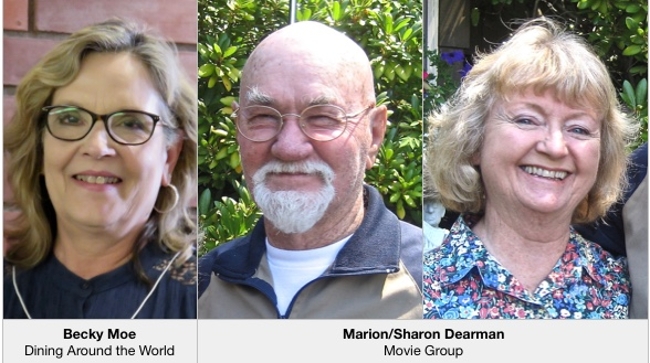
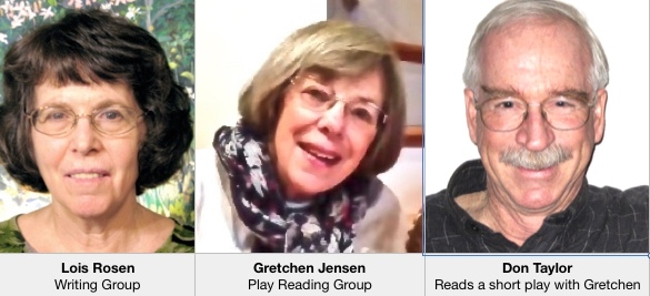
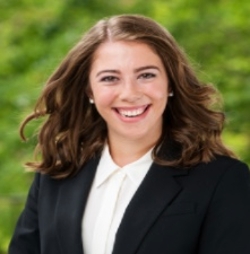 Elizabeth writes: "The past four years I have bounced back and forth between Willamette University and Washington DC, where I have worked summer internships for a political consultant and a think tank.
Elizabeth writes: "The past four years I have bounced back and forth between Willamette University and Washington DC, where I have worked summer internships for a political consultant and a think tank.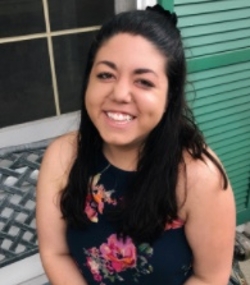 Nina writes: "I'm a senior from Northern California and am looking to work in economic development policy after graduation and/or strategic political communications. I'm on a debate team that frequently travels around the world and I'm excited within this year to be going to 5 states and China to compete. I'm also working in the university's student budget advisory committee, regularly meeting with the Senior VP Finance, Dan Valles, to help develop next year's budget plans amid a period that requires almost 10 million dollars in cuts. This work has included presenting to the Board of Trustees, running focus groups, numerous presentations, and extensive institutional research for both our university and others like us. I hope to at some point get to work internationally in economic development or issues of women's rights and opportunities and I'm looking forward to the future that Willamette has set me up for in these potential life paths."
Nina writes: "I'm a senior from Northern California and am looking to work in economic development policy after graduation and/or strategic political communications. I'm on a debate team that frequently travels around the world and I'm excited within this year to be going to 5 states and China to compete. I'm also working in the university's student budget advisory committee, regularly meeting with the Senior VP Finance, Dan Valles, to help develop next year's budget plans amid a period that requires almost 10 million dollars in cuts. This work has included presenting to the Board of Trustees, running focus groups, numerous presentations, and extensive institutional research for both our university and others like us. I hope to at some point get to work internationally in economic development or issues of women's rights and opportunities and I'm looking forward to the future that Willamette has set me up for in these potential life paths."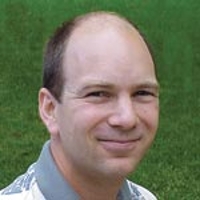 Chuck Sekafetz teaches Electronics, Industrial Controls and Robotics at Chemeketa Community College. He has staffed Lego League robotics competitions at the Evergreen Space Museum in McMinnville. He was recipient of the Intel Teacher of the Year in 2005
Chuck Sekafetz teaches Electronics, Industrial Controls and Robotics at Chemeketa Community College. He has staffed Lego League robotics competitions at the Evergreen Space Museum in McMinnville. He was recipient of the Intel Teacher of the Year in 2005